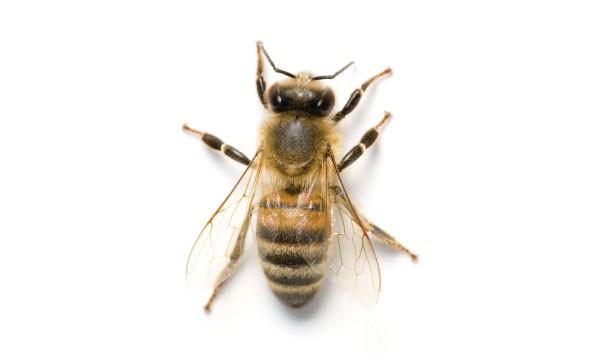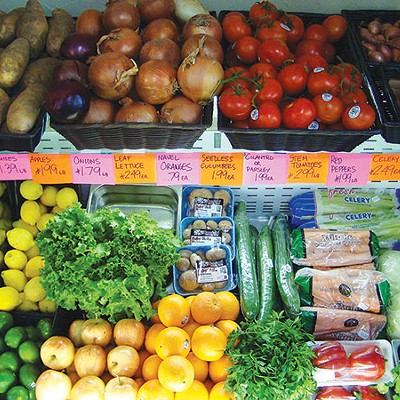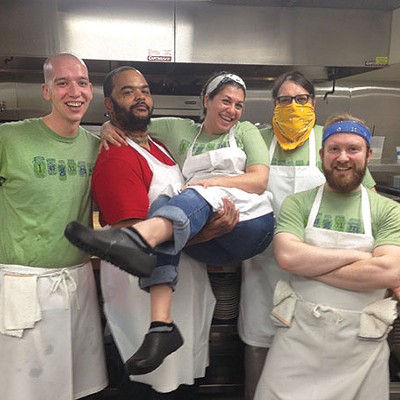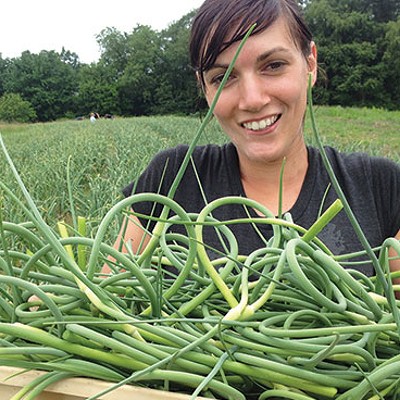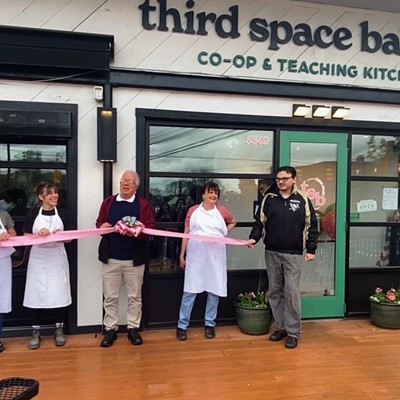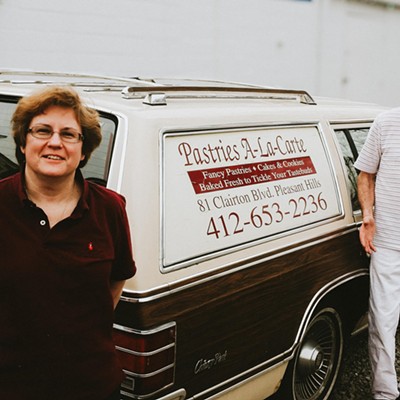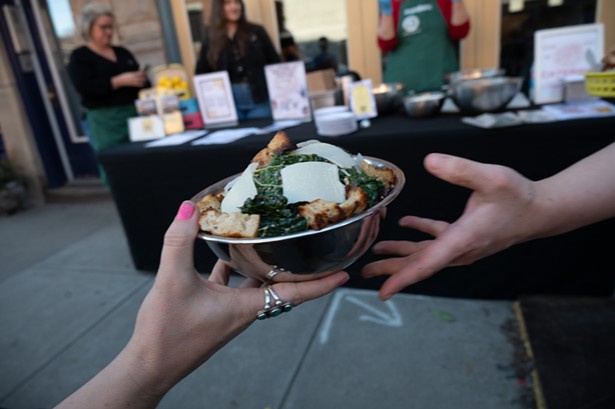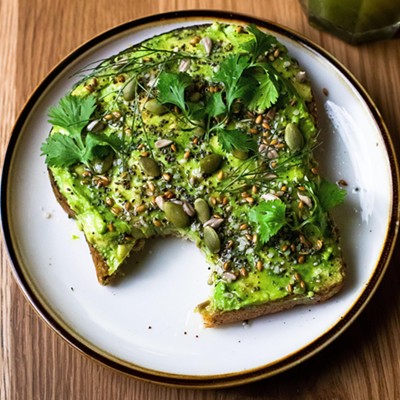On the night of Oct. 29, Fred Mugo was far from home — and yet surrounded by a familiar community: fellow beekeepers. The Kenyan agriculturalist was drinking Yuengling at the South Side's Carson City Saloon, while wistfully recalling the past.
"Honey used to be so valuable, it used to be a currency," he said. "You would buy land and livestock with it. You'd even pay dowry with honey."
Mugo, who was in town visiting his sister, was attending a "monthly meet-up" held by Burgh Bees for members and interested parties, like Mugo, who hoped to learn new technologies and help build a cross-cultural exchange of ideas. Since 2008, the organization has trained over 450 people in urban beekeeping. It also created the country's first community apiary in Homewood, where individuals can rent space, manage bees and produce honey, all with support and resources.
Mount Lebanon's John Crist, for one, "never expected to be a beekeeper." But he got hooked after his second Burgh Bees class. Now, 15 hives later, "There's nothing more energizing that being out with my hives, in solitude."
Stephen Repasky, a master beekeeper and the current Burgh Bees president, hopes to spread that passion. Beekeeping, after all, is not just about honey: The U.S. Department of Agriculture calculates that honeybees pollinate 80 percent of flowering crops, or one-third of everything eaten.
Habitat disruption, pesticide use, monocultures and illness have been blamed for a 35 percent decline in U.S. bee colonies each year since 2006, when the alarm was first raised about "colony collapse disorder," in which seemingly healthy bees abandon their hives. "We're one step away from major disaster," Repasky warns.
But the mood at Carson City was upbeat. These casual events expose Burgh Bees to a wide demographic, as do the group's low membership costs of $10 for an individual or $15 per family. The Carson City Saloon event's 15 attendees — young and old, urban and rural — were abuzz with excitement.
Burgh Bees suggests several ways to support the cause: by planting bee-friendly flowers, installing hives or donating to the mission. As Repasky says, "Without honeybees, [this] food column wouldn't exist."

